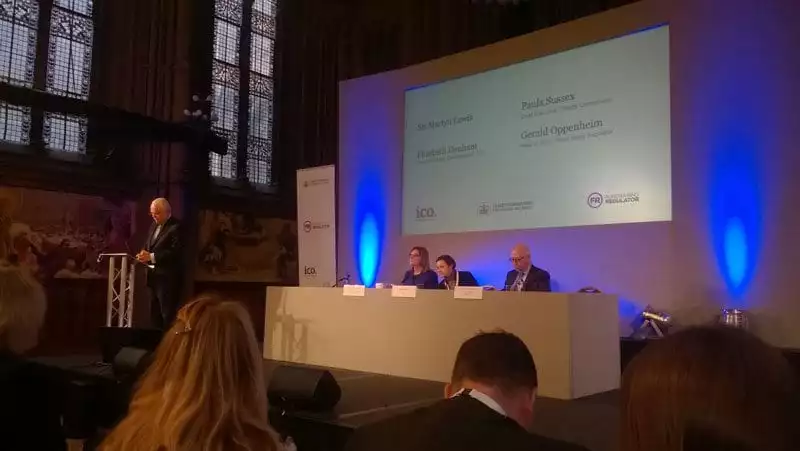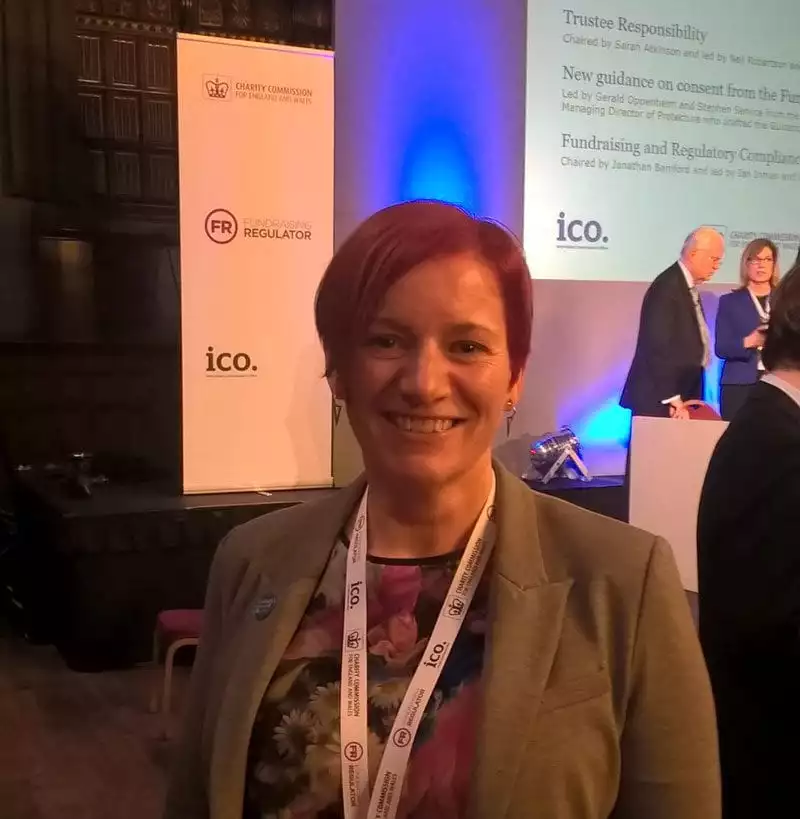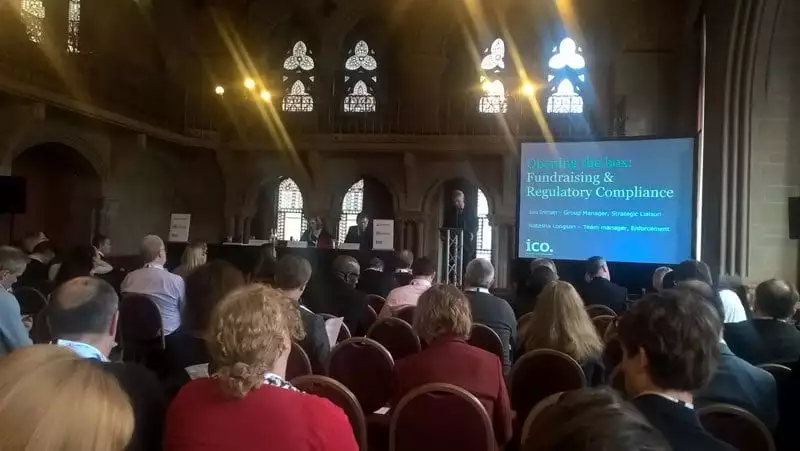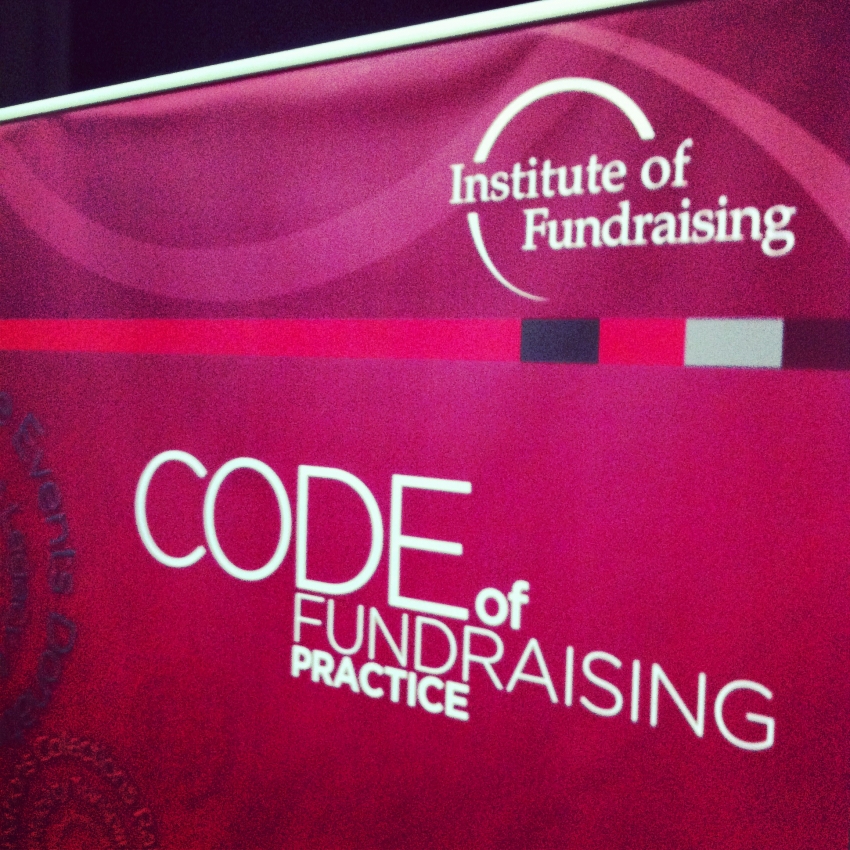Fundraising and Regulatory Compliance Conference: a missed opportunity?
It was mild and fair when I bumped into the Institute of Fundraising staff team at Manchester Piccadilly station to walk to the Fundraising and Regulatory Compliance Conference (#FRCC2017) at the City Hall. We discussed our hopes for the fundraising world to gain a better understanding of the regulators’ expectations. As I retraced my steps at the end of the day it was cloudy and drizzly – and this may be a metaphor for the experience.
The anticipated clarity was overshadowed by a repeated refrain of ‘it depends’ in response to more detailed requests for transparency over specific matters of consent, data processing rules and use of public data. What did become clear was the lack of understanding, both of good fundraising practice by the Information Commissioner’s Office (ICO) and of good data protection principles by charity colleagues. Neither is surprising. A regulator inspecting regulation breaches will naturally be influenced by the poor practice they see. Charity fundraisers didn’t go into fundraising to be data protection experts. Both parties do want to uphold the law.

Martyn Lewis and the panel (photo: Dan Fletcher)
Fundraising techniques
The challenge is to find ways forward that are sensible. For example, the ICO often remarked that charities should not infer from the receipt of ongoing donations that consent has been given for further fundraising activity to take place. This view may stem from specific cases they have dealt with (and may be justified in those cases), but it’s unhelpful for the ICO to assume that all charities will misuse such provisions and to therefore apply a blanket demand for specific consent.
This approach demonstrates a fundamental lack of understanding of charities’ reliance on fundraising techniques.
Common ground?
However, there was some common ground to provide hope that better guidance can be found. For example, the value and importance of building two-way relationships with donors, valuing the data that donors provide and moving beyond a simple transaction were endorsed on the platform by charities and regulators.

Emma Malcolm, Rethink (photo: Dan Fletcher)
Emma Malcolm from Rethink gave a compelling case study of this in the way her charity has changed to meet the needs of its donors, many of whom are beneficiaries too. It was, however, disappointing that Paula Sussex, CEO of the Charity Commission, only seemed prepared to applaud the two cases studies from Rethink and Children’s Society individually at face value. It appears that some scepticism remains among regulators about whether charities will successfully implement the changes discussed.
Advertisement
Too many types of donor for a single approach?
There clearly wasn’t common ground on the issue of using data to make decisions about how to manage fundraising to different categories of donors, and prospects. There was also very little input from the speakers about using data to fundraise from individuals in one-to-one situations in an office, or at an event. Most discussion was framed within the context of direct marketing, and generally by mail. A better understanding by the ICO of what fundraising teams actually do would help them to be clearer in the guidelines they produce, without the fear of a range of unintended consequences that will result in fewer donors having the opportunity to support causes they care about. This is one area in which there is clearly a role for the Institute of Fundraising to have dialogue with the Information Commissioner’s Office. And Peter Lewis, its CEO, has indicated that this dialogue will start now, based on discussions at the conference.
Better dialogue and increased understanding may then move us on from charities being told they need to balance ‘being intrusive’ against an individual’s right to privacy and their expectation of how data will be used. It was stated that in an investigation, the onus would be clearly on the charity to make a case, based on evidence that ‘intrusion’, or research, is more important than privacy, and that individuals will not be surprised about how their data has been used. However, no guarantees were given that the regulator would concede such a case and this is a difficult basis for charities to make decisions about their activities.

Workshop at Fundraising and Regulatory Compliance Conference (photo: Dan Fletcher)
More work needed
In conclusion, the conference didn’t live up to expectations; the clarity hoped for was replaced by tentative endorsement of individual examples and a lack of clearly agreed principles. To enable real progress, there will need to be more work done to bridge the gap between the views of the ICO about what a ‘reasonable person’ would expect from fundraisers, and the experience that fundraisers have of interacting with reasonable people who want to be philanthropic and engage with their charity’s work. Hopefully the grey clouds will lift, and Tuesday 21 February will be remembered as a date where that started to happen.
Dan Fletcher is Deputy Director at Kingston Smith Fundraising & Management.




